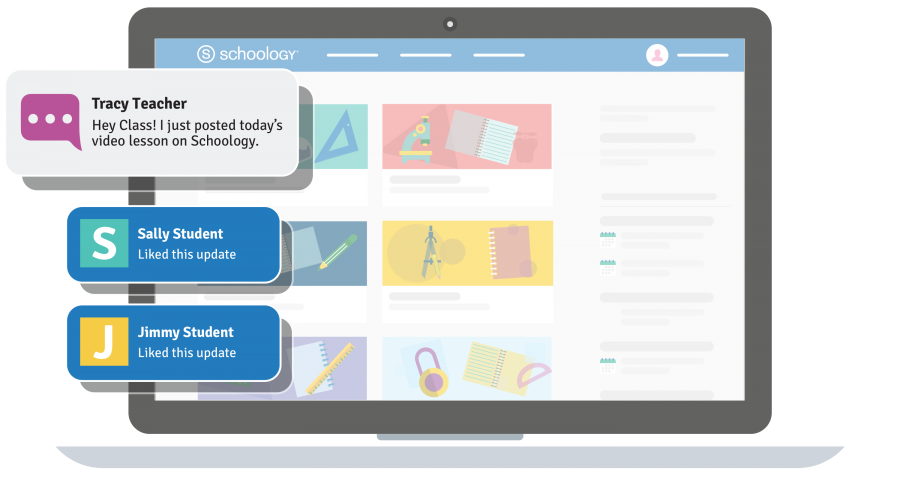The pros and cons of online school
May 20, 2020
At the beginning of quarantine, students all across the nation were overjoyed at the prospect of having no school. No additional homework was posted online yet, and, if it was, it certainly was not mandatory. Many kids thought summer had finally arrived. Even if they were stuck at home, nothing could be better than endless snow days, right?
That is until online school came into the picture. Online school is the sun that eventually got rid of any remnant of snow on the ground. Some students need the structure of an everyday routine, so those students have been craving online school. Now, some have been yearning for online school, as many students need the structure of an everyday routine. Having the ability to personally time manage your work is a bonus as well. However, others find it meaningless and menial. With no finals or IB tests to finish the school year and very minimal AP testing, a large majority of students see the work as pointless and unnecessary. The student population is divided in their opinion about online education and its effectiveness.
Those who believe online school is worthwhile and productive in the long run mainly value its personal benefits. The complaints many people have during in-person class center around the time constraints they face. It can be difficult to manage the demanding deadlines for assignments for 7-8 classes. When you learn online, you have the ability to complete your assignments all at once or spread them out based on what works best for you. For many online classes, it is common to have 2-4 days to complete your assignments for that week. Along with this, instead of having a full schedule every day, one only has 3-4 classes per day. This is helpful, as one does not feel overwhelmed whatsoever and one can focus much more on your classes just on a smaller scale. In conjunction, many students have to continue their jobs in order to help support their families during this difficult financial time. Obviously, work schedules vary greatly and may be from early morning to late at night. The ability to take on school when it works for you is another asset of online learning. In school, many students say that they dislike the length of classes/lecturing when assignments could just be assigned and more class time could be available to work on them. With this new curriculum, there is no room for “busy work” or anything unnecessary. The teacher can simply attach the assignment(s) for the week and possibly link a few videos or documents for the students’ reference. This makes work much more convenient for students because they can complete everything efficiently, possibly more efficient than in-person teaching.
Despite several advantages of online learning which appeal to many, its pitfalls are not absent. Although you have the ability to construct your day based on times that work best for you, many students see this as a negative aspect of the situation. Having a set schedule to follow every day is what many rely on and need. Losing this routine is devastating for students who suffer from mental health struggles, like anxiety and depression, for example. When some students cannot follow a strict schedule, their mental health can drastically decline. The responsibility of putting together your own school day is too much for some students. Another downside of online learning is that you lose the ability to directly speak to your teachers when you need to. If you ever had a question on an assignment/assessment the teachers were immediately at your disposal. Now, although the teachers are doing their best to efficiently respond to every student through email and Zoom, it is still sometimes distressing to have questions and not receive an immediate answer. Many students feel very distant from their teacher, as they have built relationships with each other throughout the school year, only to have them broken off now. Along with this, the social aspect of school is very beneficial for students, as the opportunities for collaboration and friendships flourish. This is very limited with online learning. Using Zoom to talk to other students in your class is the most interaction with school friends that many have. The ability to collaborate and speak with others is gone, as are group projects, which benefit students in more ways than one. When teaching younger students especially, the introduction of working with others is a necessary skill that can no longer be emphasized in online learning.
Evidently, online school has ardent supporters as well as defiant adversaries, as it has severe effects on various groups of people. The truth regarding the effectiveness of online school really lies in the type of learner one is, whether they value social and group learning, or more private, individualized education. Every student in America has been learning how to make this new reality work, and it is certainly making its mark. The debate as to whether online school is truly beneficial will continue to exist until the end of quarantine, and most likely after, as we begin to see its long-lasting effects.












